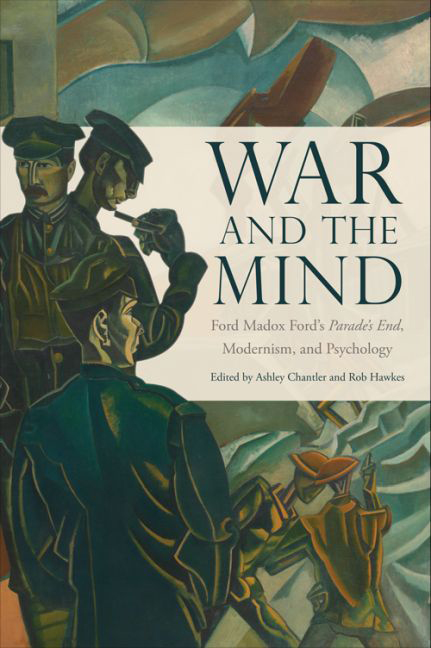Book contents
- Frontmatter
- Contents
- Acknowledgements
- Introduction
- 1 ‘Sex ferocity’ and ‘the sadic lusts of certain novelists’: Sexuality, Sadomasochism, and Suppression in Parade's End
- 2 Freud Madox Ford: Impressionism, Psychoanalytic Trauma Theory, and Ford's Wartime Writing
- 3 Empathy, Trauma, and the Space of War in Parade's End
- 4 Fellow Feeling in Ford's Last Post: Modernist Empathy and the Eighteenth-Century Man
- 5 The Self-Analysis of Christopher Tietjens
- 6 Composing the War and the Mind; Composing Parade's End
- 7 The Work of Sleep: Insomnia and Discipline in Ford and Sassoon
- 8 Representing Shell Shock: A Return to Ford and Rebecca West
- 9 ‘I hate soldiering’: Ford, May Sinclair, and War Heroism
- 10 Peace of Mind in Parade's End
- Notes on Contributors
- Bibliography
- Index
2 - Freud Madox Ford: Impressionism, Psychoanalytic Trauma Theory, and Ford's Wartime Writing
Published online by Cambridge University Press: 15 September 2017
- Frontmatter
- Contents
- Acknowledgements
- Introduction
- 1 ‘Sex ferocity’ and ‘the sadic lusts of certain novelists’: Sexuality, Sadomasochism, and Suppression in Parade's End
- 2 Freud Madox Ford: Impressionism, Psychoanalytic Trauma Theory, and Ford's Wartime Writing
- 3 Empathy, Trauma, and the Space of War in Parade's End
- 4 Fellow Feeling in Ford's Last Post: Modernist Empathy and the Eighteenth-Century Man
- 5 The Self-Analysis of Christopher Tietjens
- 6 Composing the War and the Mind; Composing Parade's End
- 7 The Work of Sleep: Insomnia and Discipline in Ford and Sassoon
- 8 Representing Shell Shock: A Return to Ford and Rebecca West
- 9 ‘I hate soldiering’: Ford, May Sinclair, and War Heroism
- 10 Peace of Mind in Parade's End
- Notes on Contributors
- Bibliography
- Index
Summary
Parade's End is not a typical war narrative, its unconventionality apparent at the level of both form and content. Not only was it published earlier than the 1929–30 boom in Great War narratives (Some Do Not … was first published in 1924), but the tetralogy also differs from this canon of war literature in its unique Fordian Impressionism that is explicitly preoccupied with consciousness and subjectivity at the expense of the action, drama, and disillusionment of the battlefield. For example, Ford recounts the daily experience of the war as follows:
But, had you taken part actually in those hostilities, you would know how infinitely little part the actual fighting itself took in your mentality. You would be lying on your stomach, in a beast of a funk, with an immense, horrid German barrage going on all over and round you and with hell and all let loose. But, apart from the occasional, petulant question: ‘When the deuce will our fellows get going and shut ‘em up?’ your thoughts were really concentrated on something quite distant: on your daughter Millicent's hair, on the fall of the Asquith Ministry, on your financial predicament, on why your regimental ferrets kept dying, on whether Latin is really necessary to an education […]. You were there, but great shafts of thought from the outside, distant and unattainable world infinitely for the greater part occupied your mind.
The Fordian mind at war focuses not on present danger but on things ‘quite distant’ such as worries about one's children, finances, government, and the men in one's battalion. Thus, Ford devotes the vast majority of the tetralogy not to impressions of the trenches but to domestic disturbances in the form of adultery, divorce, repressed sexual passion, and the battle between the sexes.
- Type
- Chapter
- Information
- War and the MindFord Madox Ford's Parade's End, Modernism, and Psychology, pp. 35 - 49Publisher: Edinburgh University PressPrint publication year: 2015



